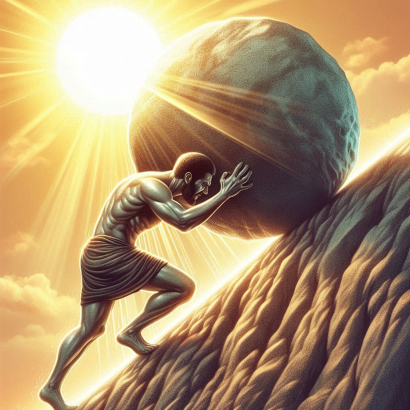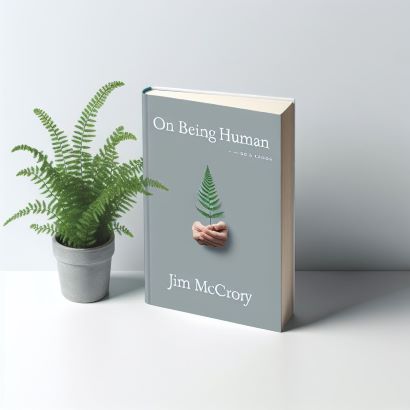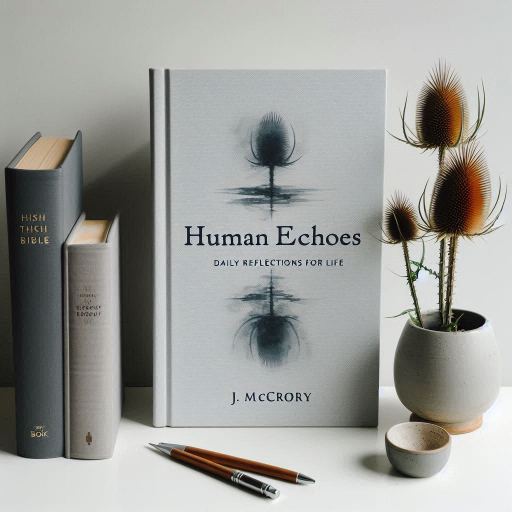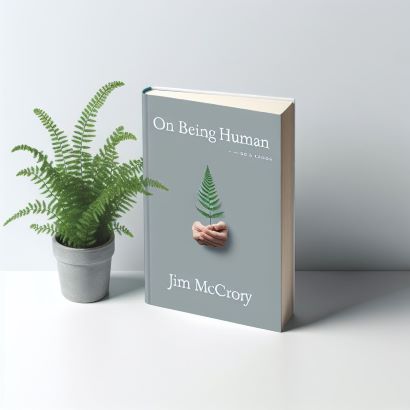"If conscience leads you to shadowed paths, take heart; prophets trod there first."

Image generated by the assistance of Microsoft Copilot
Many
people who leave a religious group due to frustration with leadership find
themselves on a complex, often circular journey. The need for connection is so
strong that it pushes them toward another group with the same underlying
dynamics they were trying to escape. Though they initially experience relief
and freedom in leaving, it’s not long before they’re drawn to a new
organization, one that seems, on the surface, to promise everything the old one
failed to deliver. But over time, they start noticing familiar patterns—rigid
rules, expectations of conformity, or flawed leaders who still claim special
authority over others and, the constant solicitation of money.
Leaving
a group that once shaped your life is no small thing. It leaves a profound
void, and that emptiness can be overwhelming. Yet, even as they start with hope
in this new community, many realize they’re re-living an old story, hoping this
time it will end differently. They desperately want to be part of a group where
they can be themselves, but that desire often leads them to overlook red flags.
They might find themselves rationalizing behaviours or doctrines they initially
disagreed with, telling themselves that it’s different this time. Slowly, they
realize they’ve ended up back where they started.
Perhaps
most ironically, those who join these new groups often become obsessed with
their old ones. For some, leaving doesn’t mean freedom; it only transforms the
struggle. Instead of focusing on new beliefs or practices, they spend countless
hours denouncing the group they left. It becomes almost a Sisyphean
task—forever rolling the stone uphill as they bash their former faith over the
head, recounting every flaw, every wrong, in endless detail. Rather than moving
on, they become locked in a cycle of resentment and critique, investing more
energy in tearing down their past than building up their present. It’s as if
they can’t resist the urge to keep proving—to themselves or others—that leaving
was justified, that they were right to reject what they once held dear.
The
Bible speaks to this tendency. Psalm 146:3 reminds us, “Do not put your trust
in princes, in human beings, who cannot save.” This wisdom holds true whether
we’re following leaders within a religious group or in our personal lives. When
we place too much trust in human leadership—whether that’s the leaders we left
or the new ones we’re following—disappointment is almost guaranteed. We risk
becoming bitter, lost in a perpetual cycle of anger and frustration. Yet,
Jesus’ teachings offer a different path. Throughout his ministry, he repeatedly
warned against putting spiritual dependence on flawed human authority. Instead,
he emphasized a direct relationship with God, describing himself as the way to
God.
In
leaving one group for another, many people compromise their beliefs simply to
belong. They ignore the subtle ways their conscience twinges, just to keep that
sense of connection. But Christ calls his followers to a deeper kind of
independence, saying, “And do not call anyone on earth ‘father,’ for you have
one Father, and he is in heaven” (Matthew 23:9). True belonging isn’t about
abandoning one’s convictions for the comfort of conformity; it’s about finding
strength in a personal relationship with God that doesn’t depend on any human
mediator.
Being
around others who share similar beliefs can provide encouragement and support.
But joining a group with an unquestioning mindset, expecting them to fulfil all
our needs, is a recipe for repeated disappointment. When people place their
trust in God above any human leadership, they are free to engage in community
with balance, knowing that their faith isn’t contingent on any one group or
leader.
Perhaps
the path forward is this: to approach every community with an open yet
discerning heart. Instead of depending on human leaders to guide every step, we
can rely on our personal relationship with God without the need for a spiritual
middleman.
Breaking
the cycle of dependency on flawed human leadership means taking to heart the
truth that true spiritual strength doesn’t come from groups or leaders. It
comes from a relationship with God that allows us to connect with others
without compromising our convictions. It’s this kind of connection that truly
liberates, lifting us out of the endless task of justifying our past and
enabling us to look forward to a faith that is free, genuine, and deeply
rooted. Instead of endlessly battling the shadows of our old beliefs, we can
step forward in peace, confident that God walks with us—our ultimate guide, our
ever-present friend.
Part 2
Finding God in the Quiet: Embracing
Solitude
“Even though I walk through the
valley of the shadow of death, I will fear no evil, for You are with me; Your
rod and Your staff, they comfort me.” Psalm 23:4
Leaving
a religious organization can feel like stepping into a void, a place where the
familiar structures of support and community fall away, leaving us alone with
our thoughts and questions. It’s a journey that often brings a mixture of
relief and pain, freedom and fear. You may have hoped for warmth, compassion,
and a reflection of God’s love, only to find the harsh reality of human
imperfection. And now, as you look around, you might feel as though you’re on
the outside looking in, wondering where to turn next. Yet in this solitude,
even in the shadows, you may find something quietly transformative waiting.
The
Bible gives us story after story of individuals who found themselves in the
darkness, far from the comfort of home or the embrace of community. They, too,
walked a lonely path, but it was there—in the quiet, empty spaces—that they
came closest to God. Think of Joseph, imprisoned unjustly, or Moses, who spent
decades in the wilderness after fleeing Egypt. These are men who knew isolation
deeply, who wondered if anyone else understood. And yet, it was in these
shadowed seasons that they encountered God in profound ways, ways that perhaps
would not have been possible in the busy rhythms of community life.
C.S.
Lewis, no stranger to questions of faith and doubt, once he compared it to God’s megaphone.” He believed that pain and solitude,
however unwanted, often work as tools that deepen our spiritual lives. He once
wrote, “God whispers to us in our pleasures, speaks in our conscience, but
shouts in our pains: it is His megaphone to rouse a deaf world.” Lewis knew
that these experiences have a way of stripping us down to our essentials,
making us aware of how deeply we need God—God alone, free from the trappings of
institutions and expectations.
For
those who have left religious communities, this solitude can feel jarring, even
desolate. You may feel the loss of shared rituals, the absence of familiar
faces, or the awkwardness of unlearning old beliefs to discover faith anew.
Yet, like the biblical figures who found God outside the city gates, beyond the
temple walls, there’s a beautiful, quiet strength in this moment of solitude.
Here, where you are free from others’ interpretations, judgments, or
expectations, you have the opportunity to experience God in a raw, personal
way, unfiltered by anyone else’s lens.
Elijah,
the prophet, also experienced something similar. After standing up against the
prophets of Baal, he fled into the wilderness, alone and exhausted, ready to
give up. But it was there, in the silence of the wilderness, that God didn’t
come in a great wind, or earthquake, or fire—He came in a whisper. Elijah’s
story shows us that God doesn’t abandon us in our wilderness. Sometimes, He’s
closer than we ever realized, present in ways that only the quiet and the
solitude can reveal.
There’s
comfort in knowing that when we find ourselves in these shadowed places, we are
in good company. For the apostles, it was often in prison cells or lonely
stretches of desert that they wrote some of their most stirring words, finding
strength in the assurance that even in their trials, nothing could separate
them from God’s love. The Apostle Paul, isolated in prison, wrote that he had “learned
the secret of being content in any and every situation.” His words are a
reminder that this peace, this closeness with God, isn’t tied to our external
circumstances or surroundings but to something much deeper within.
Leaving
an organization doesn’t mean leaving behind the possibility of finding God; if
anything, it opens up new ways of seeing and experiencing Him. In the absence
of structured routines, we have the freedom to discover what a relationship
with God truly looks like—perhaps in long, solitary walks in nature, or in
quiet mornings with scripture, or even in simple, heartfelt prayers whispered
in the quiet of night.
And
yes, the dark places can be disorienting but remember Lewis’s words about
darkness: “I believe in Christianity as I believe that the sun has risen: not
only because I see it, but because by it I see everything else.” When we’ve
been in the dark, the smallest light becomes all the more precious, and we
begin to see God not as a distant deity, but as the One who walks beside us,
even when no one else does.
So
if you find yourself alone, walking away from a community that once shaped your
life, take heart. You are not abandoned, and you are not truly alone. This may
be your wilderness, but as the stories of scripture reveal, the wilderness is
often where God does His deepest work within us. And as you gravitate towards this solitude, you may find, as those before you have, that this is the very
place where God’s voice becomes clearest, His love most evident.
It’s
a hard journey, yes, but you may find that in losing the crowd, you’ve gained
something even greater—a direct and personal encounter with God. And one day,
when you emerge from this season, you may see that it was here, in the quiet,
that you grew roots of faith stronger and deeper than you ever imagined.























 Image generated with the assistance of ChatGPT
Image generated with the assistance of ChatGPT